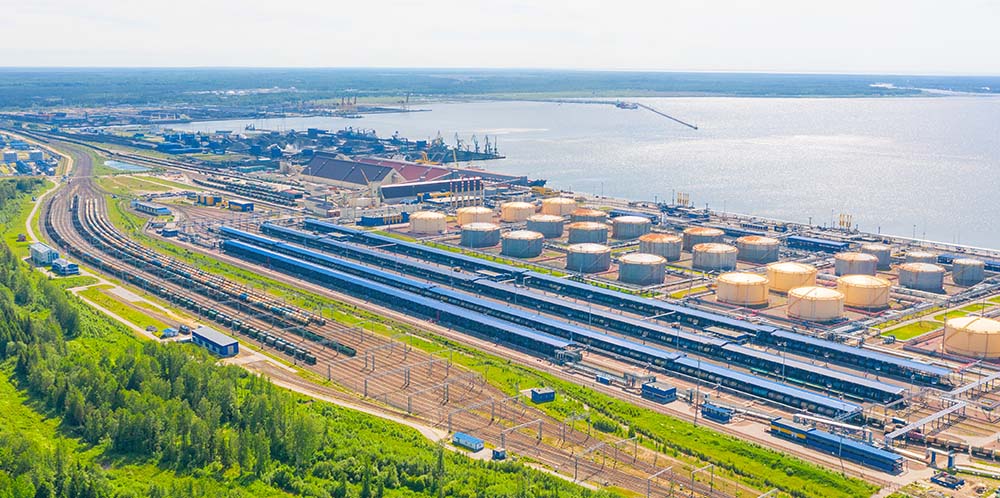Commodity Trading Week Americas (CTW) in Stamford, CT delivered some encouraging news: the commodity trading industry has finally reached the consensus that digital transformation is inevitable, and..
How Gulf Oil mitigated costly errors and eliminated data bottlenecks
The right technology — and partner — transforms critical processes
When Gulf Oil commercial controller Mike Kelliher started working in the energy industry many years ago, he was surprised by the number of processes still being managed manually. “It was eye opening seeing the inefficiencies and outdated manual processes being used despite the maturity of the industry,” he says.
When Kelliher joined Gulf, he noticed there were two manual processes that were causing significant challenges: paying freight invoices and actualizing volumes in the energy trading and risk management (ETRM) system related to purchase contracts.
Manual processes impede efficient operations
Paying freight invoices was an inefficient, manual process that kept back-office personnel tied up with low-value tasks that could delay vendor payments. When an invoice was received, an employee would need to find and document the matching accrual transactions in the ETRM system, upload the invoice into the enterprise resource planning (ERP) system, and manually associate the invoice with the payable instance.
“When you have different people manually entering data inputs, there can be errors and inconsistency in how items are coded,” said Kelliher. “We were paying out overtime to process thousands of monthly freight invoices and then to review and correct any errors.”
Front-office processes related to renewable fuels were also causing bottlenecks: Every movement had to be managed manually. A Gulf terminal operator would email movement bills of lading (BOLs) to a scheduler who would then enter the BOL data into the ETRM system, and manually associate the movement with purchase and logistics details.
“This data has a dramatic impact on our inventory position; accuracy is critical and the data needs to be processed as quickly as possible,” says Kelliher. “Our manual processes caused delays in the downstream processing of transactions, and impacted our ability to pay suppliers on time. Both are instances we could not afford to have repeated.”
The right solution is identified
Kelliher was introduced to ClearDox® through a mutual partner that was familiar with the issues Gulf was trying to address.
The ClearDox team explained how their intelligent automation solution could address their challenges. ClearDox would extract, standardize and reconcile data from digital and handwritten documents, then integrate that data into systems including Gulf’s ERP and ETRM systems.
“We quickly understood the power of the technology,” says Kelliher. “We were impressed by how easy the solution was to use, as well as by the ClearDox team’s expertise.”
Automation delivers big benefits
Kelliher was sold on ClearDox, and today, paying freight invoices is no longer a cumbersome manual process. ClearDox automatically extracts and standardizes invoice data, then pushes it to the ETRM system, where accrued transactions are automatically matched to the invoice. It then sends the invoice to the ERP system. Staff only get involved if data is missing or out of tolerance.
“Employees that were once spending five to fifteen minutes processing one invoice now have more time to focus on high-value activities like analysis,” says Kelliher. “This has led to more engaging and fulfilling work for our employees.”
Tracking renewable fuel movements is now a much faster and efficient process. ClearDox automatically extracts and standardizes data from BOLs and creates the movements in the ETRM system. A scheduler then must associate the movements with the ETRM system purchase and logistics data — but not for much longer, as this part of the process will also soon be automated.
Now that manual intervention is minimized, inventory positions are significantly more accurate — and Gulf’s schedulers are free to focus on their core responsibilities. “Our schedulers have more time to spend on solving logistics challenges because they’re not continually entering data,” Kelliher says.
Furthermore, because both the freight invoice and renewable fuel tracking processes are automated, vendors and suppliers are paid faster, making penalties a thing of the past.
Now that Gulf has the right technology — and the right partner — Kelliher is looking to automate even more. “ClearDox does intelligent automation solutions better than everyone I’ve talked to in the industry,” he says. “The possibilities are really endless when it comes to what we can do with ClearDox.”
Watch the video case study to learn more about this project.




